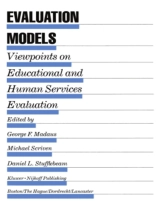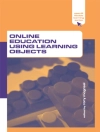Attempting fonnally to evaluate something involves the evaluator coming to grips with a number of abstract concepts such as value, merit, worth, growth, criteria, standards, objectives, needs, nonns, client, audience, validity, reliability, objectivity, practical significance, accountability, improvement, process, pro- duct, fonnative, summative, costs, impact, infonnation, credibility, and – of course – with the tenn evaluation itself. To communicate with colleagues and clients, evaluators need to clarify what they mean when they use such tenns to denote important concepts central to their work. Moreover, evaluators need to integrate these concepts and their meanings into a coherent framework that guides all aspects of their work. If evaluation is to lay claim to the mantle of a profession, then these conceptualizations of evaluation must lead to the conduct of defensible evaluations. The conceptualization of evaluation can never be a one-time activity nor can any conceptualization be static. Conceptualizations that guide evaluation work must keep pace with the growth of theory and practice in the field. Further, the design and conduct of any particular study involves a good deal of localized conceptualization.
George F. Madaus & M. Scriven
Evaluation Models [PDF ebook]
Viewpoints on Educational and Human Services Evaluation
Evaluation Models [PDF ebook]
Viewpoints on Educational and Human Services Evaluation
قم بشراء هذا الكتاب الإلكتروني واحصل على كتاب آخر مجانًا!
لغة الإنجليزية ● شكل PDF ● ISBN 9789400966697 ● محرر George F. Madaus & M. Scriven ● الناشر Springer Netherlands ● نشرت 2012 ● للتحميل 3 مرات ● دقة EUR ● هوية شخصية 4665327 ● حماية النسخ Adobe DRM
يتطلب قارئ الكتاب الاليكتروني قادرة DRM












